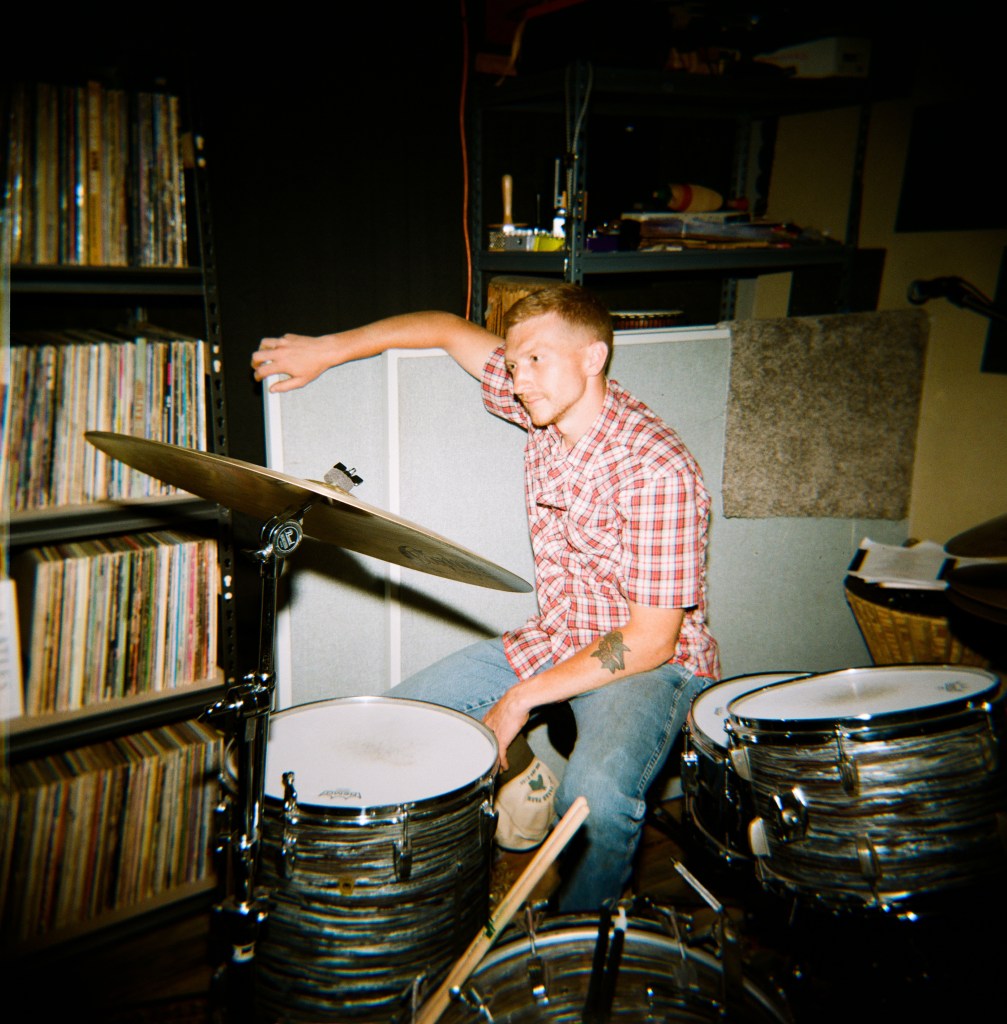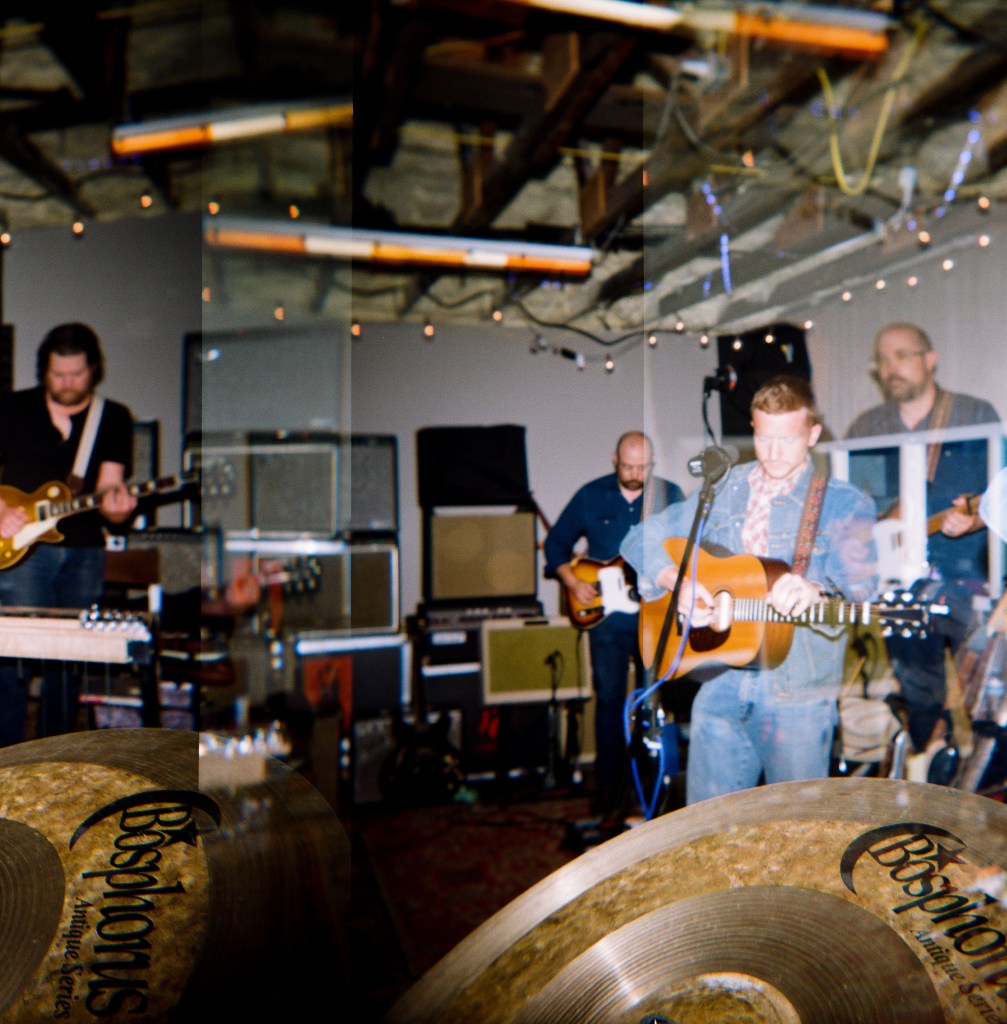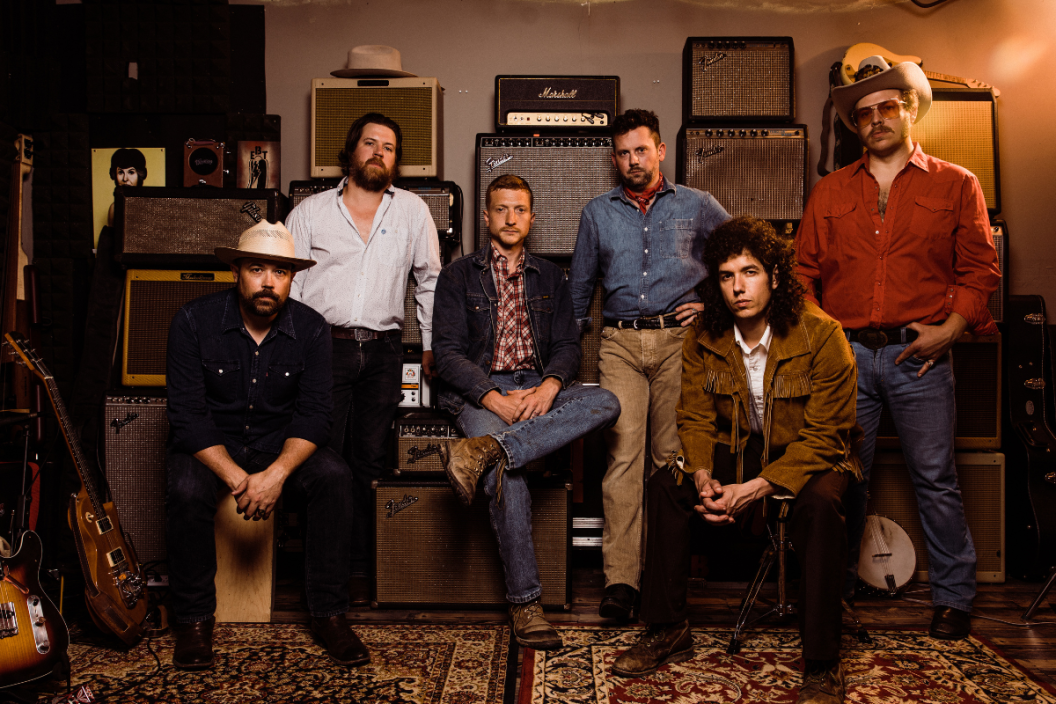"Hallelujah! Jubilee! I can hear the angel band!"
Videos by Wide Open Country
Between Tyler Childers and his touring band The Food Stamps, with appearances from Childers' longtime friends -- Theresa Prince, Joslyn Hampton and Charlie Brown Superstar -- Childers crafts his very own Angel Band on new release of Can I Take My Hounds To Heaven?.
The three LP concept record and spiritual journey begins with Childers' iconic cover of "Old Country Church," which he dedicates to his "papaw's army buddy" Clyde Lloyd, who taught Childers to play the song at just five years old.

Photo by Emma Delevante
Title track "Can I Take My Hounds To Heaven" is a song that's been in Childers' archive since as early as 2017. The tune finds Childers pleading to the heavens, begging to hunt alongside the streets of gold after he's gone on to heaven.
"Two Coats" is an instrumental rendition of the Hymnal, incorporating The Food Stamps funky spin with Childers' country roots.
"Purgatory," the title track of Childers' sophomore album, is stripped from its bluegrass predecessor and the story of a man fearing his eternal fate is given new life.
"Way of the Triune God" is a testament to faith spearheading sobriety, while "Angel Band" is the "anchor" for the record, sharing themes of harmony and the realization of heaven. "Jubilee" a cover brought to life with the vocals of Theresa Prince of Luna and the Mountain Jets. "Heart You've Been Tendin'" is a take on spiritual self-fortification. The 8-track album is shown in three different lights -- Hallelujah, Jubilee and Joyful Noise -- each with their own sonic perspective illustrating one ecumenical vision.

Emma Delevante
On Hallelujah, each track was recorded in one room with Childers' touring band 'The Food Stamps" (Rod Elkins on drums, Craig Burletic on bass, James Barker on pedal steel and electric guitar, CJ Cain on acoustic guitar, Chase Lewis on piano and Jesse Wells on fiddle). This is the first of Childers' releases to be recorded with The Food Stamps, and long-awaited one at that. Hallelujah is a celebration of this and the cumulation of talent in that room. Inside the record sleeve, Childers leaves a special dedication: "I'd like to thank my bandmates for all the years of road doggin' and dedication. It has been an honor to play music with you guys, and I love you."

Photo by Emma Delevante
Jubilee is backed by a full band including horns, an organ, and various string instruments. On Jubilee, Childers welcomes guests such as Theresa Prince to lead vocals on Jubilee and Joslyn Hampton, of Joslyn and the Sweet Compression, as a background vocalist. Jubilee is the perfect reflection of the Angel Band idea, producing a large and ethereal sound. Childers welcomed both Prince and Hampton as opening acts to the Red Rock Amphitheater stage just days before the release of the record.
Joyful Noise is a set of remixes co-produced by Charlie Brown Superstar (Brett Fuller). Stitched together are electronic influences, bluegrass structures and various soundbites, from The Andy Griffith Show to the heavenly hounds, sending the listener on an otherworldly sonic adventure deep into their own psyche and the roots of the songs.
Childers' Appalachian Baptist upbringing has a heavy influence on the release. Woven within the record are snippets of tradition commonly found in churches tucked into the Appalachian Mountains. There are structural differences between the three versions of the record, and in their meaning in tradition. It wouldn't be out of the ordinary for the man "rattlin' a Werther's on his dentures in the pew" to let out a "Hallelujah!" as an exclamation of praise during church services. Just as Hallelujah supplies a familiar sound to the everyday Tyler Childers & The Food Stamps fan. Jubilee reflects a special occasion & a cause for celebration. People would gather from all over for a Jubilee -- hence the guest appearances, layering of instruments and vocals to create that large celebratory sound. On "Two Coats" (Joyful Noise Version) Childers & Fuller utilize "lining," an old practice that was common in Appalachian Churches. Lines of the hymnal would be sung before the congregation and initiate a call and response. Childers alludes to this practice in the opening verse of "Angel Band":
"He stands behind the pulpit, He's callin' out a line. Responds the congregation, Just a little ways behind."
Instead of focusing on what the album is, Childers reframes, looking at what the album is not intended to be: "It's coming from a place of harmony and welcoming" not to produce another gospel record. Although Christian themes and traditions are present throughout the record, Childers describes this as a reflection of the lens his ideas are formed in: "Appalachian raisin." In the making of Can I Take My Hounds To Heaven? he describes himself as "Filtering through that and trying to find the truth, the beauty, and the things you should think about and expelling all that nonsense." The different versions, he goes on to say, are like "processing life experiences in the different philosophies and religions that have formed me." In Angel Band, upon reaching the afterlife, Childers describes finding a diverse and inclusive population inhabiting the heavens.
"Up there in the choir
Singin' side by side
Wonderin' why exactly yhey've been fussin' the whole time
...
And I'll jump right in amongst them when I reach the glory land."
Can I Take My Hounds To Heaven? continues Childers' mission for unity that began with Long Violent History while being a testament to the artistry and the creative process through breaking industry norms. The album is an exercise of Childers' creative freedom -- and mastery at that.
Overall, it serves as a landmark for how far they've come while never forgetting where they're from, bringing fellow Appalachians along with them as they shine a new light on the region.




